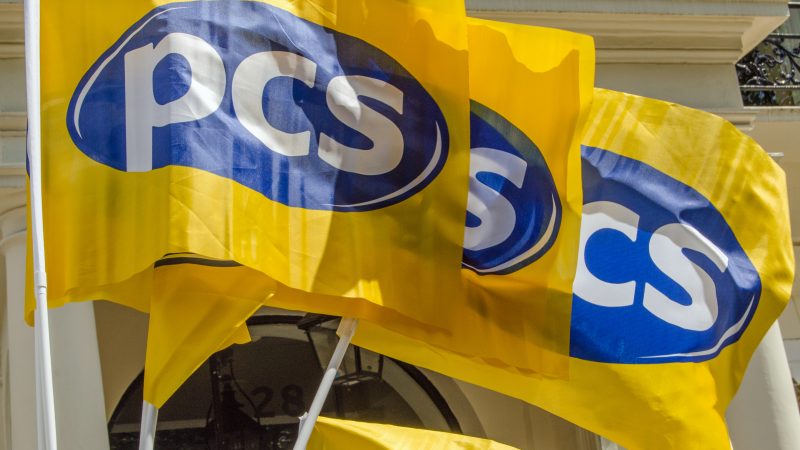
The Public and Commercial Services union has announced an “initial programme” of “hard-hitting, targeted” strike action across multiple government departments following unsuccessful negotiations with the Cabinet Office.
The union’s national executive committee (NEC) met today and agreed an initial programme of strike action impacting the Home Office, the Department for Transport and the Department for Environment, Food and Rural Affairs.
PCS representatives met with officials in the Cabinet Office this week. The union revealed today that the government had not made “any proposals” that address its demands for a 10% pay rise, better pensions, increased job security and no cuts to redundancy terms.
PCS general secretary Mark Serwotka said: “PCS members are angry. They helped to keep this country running during the pandemic and in return, have been treated appallingly by this government. With inflation now at 11.1%, it is inconceivable that they are expected to cope with yet another real-terms pay cut.
“With tens of thousands of members on poverty pay, it is no longer about tightening belts, but about choosing between heating and eating – and that is simply not acceptable for the government’s own workforce.
“We have made it clear to the Cabinet Office that we are available for talks throughout this period. I hope that they do the right thing and come back to the table prepared to meet our demands.
“If not, then we are prepared to do what we need to do to show them the value of our members’ work once they withdraw their labour.”
The PCS said its NEC will meet again to “consider further strikes” if the Cabinet Office fails to make any proposals “soon”. The union revealed today that it has a “significant strike fund” and has taken steps to raise “significantly more money” to support striking members “for a sustained period”.
The union announced last week that its ballot for strike action in the civil service received an average ‘yes’ vote of 86.2% across the areas balloted – the highest in the union’s history. Approximately 100,000 civil servants are thought to have voted in favour of strike action.
A total of 126 employer areas voted in favour of strikes and met the 50% turnout threshold legally required for industrial action. The average turnout across all balloted areas was 51.6%.
Commenting on the ballot results, Serwotka said: “The government must look at the huge vote for strike action across swathes of the civil service and realise it can no longer treat its workers with contempt.”
“Our members have spoken, and if the government fails to listen to them, we’ll have no option than to launch a prolonged programme of industrial action reaching into every corner of public life,” the union leader warned.




More from LabourList
‘Tackling poverty should be the legacy of Keir Starmer’s government’
‘The High Court judgment brings more uncertainty for the trans community’
‘There are good and bad businesses. Labour needs to be able to explain the difference’